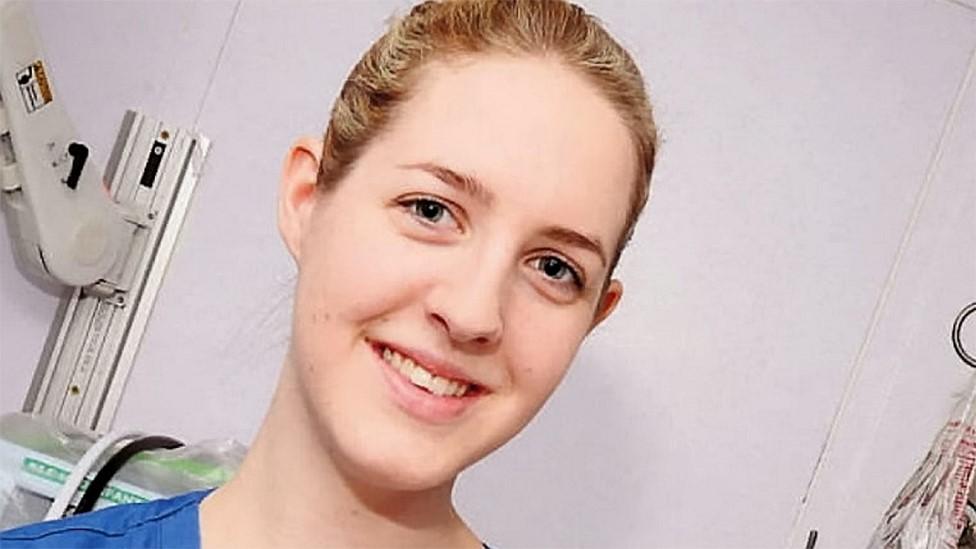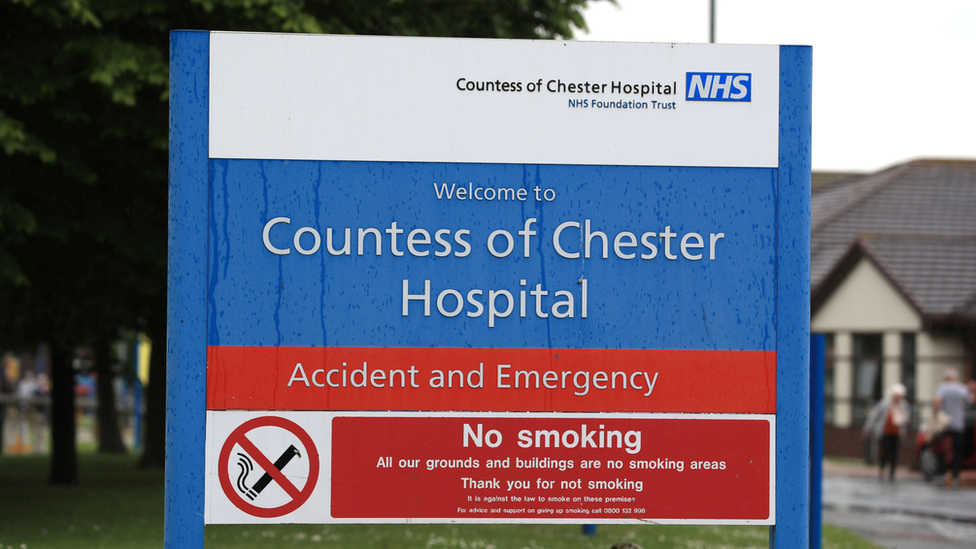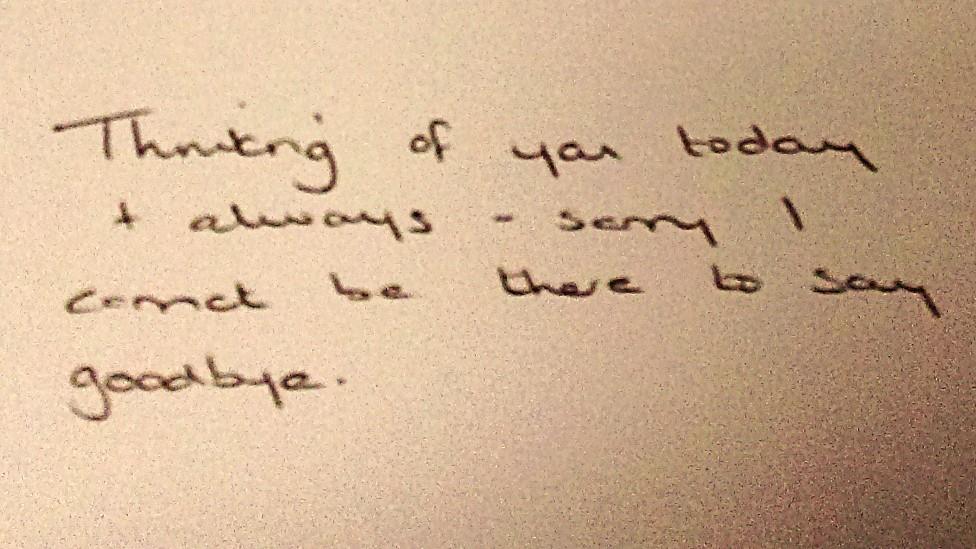Lucy Letby: Baby boy given 'noxious substance', nurse trial hears
- Published

Lucy Letby is accused of murdering seven babies and trying to kill 10 others
A baby boy's heart stopped beating after he was given a "noxious substance" or was injected with air, the trial of nurse Lucy Letby has heard.
Ms Letby is said to have tried to murder the premature twin, referred to as Child M, at the Countess of Chester Hospital in April 2016.
She is charged with murdering seven babies and attempting to murder 10 others between 2015 and 2016.
The 33-year-old denies 22 charges.
Medical expert Dr Dewi Evans, who was asked to review the case by Cheshire Police in 2017, said the collapse of Child M on 9 April 2016 was "completely unexpected and quite precipitous".
The court has previously heard how an emergency crash call went out to medics to attend to Child M at 16:02 BST after he went into cardiac and respiratory arrest.
Over the next 25 minutes, senior doctors and nurses gave CPR and administered six doses of adrenaline in a battle to stabilise the infant.
The baby boy improved at about 16:31 and was placed on a ventilator.

The collapse of Child M was "completely unexpected and quite precipitous", Dr Dewi Evans told the court
Dr Evans said the previously stable baby's sudden collapse "begs the question whether (Child M) received some noxious substance prior to his arrest or a bolus of air via his long line".
The expert said he ruled out infections, such as pneumonia, as a cause for Child M's collapse as the infant "would not have made such a prompt respiratory recovery" in the hours that followed.
He added: "This was a consequence of some substance or air getting into his circulatory system. He had received air intravenously."
Dr Evans explained that this could have been injected via a bung, used to rapidly administer antibiotics, that was attached to the line that ran from an IV bag to a cannula attached to the infant.
'Virtually unheard of'
Ms Letby's defence lawyer Ben Myers KC put it to Dr Evans that Child M's collapse could have been due to "some residual underlying issue", he disagreed and repeated his belief that air was deliberately injected.
Dr Evans explained that other causes for the child's collapse had been ruled out and that an "accidental air injection is virtually unheard of" due to the sophistication of modern medical equipment.
Mr Myers said this was a claim he had "no supporting evidence for whatsoever". He also went on to say that Dr Evans did not have any empirical research to back up his claims about the effects of air embolus.
Dr Evans responded, saying "you cannot do clinical research" on the effects of injecting air into babies.
"That is not going to change anytime soon," he said.
Medical expert Dr Sandie Bohin, who reviewed Dr Evans' findings, later told the court "there are very few things that can cause a baby to collapse" in the way Child M did.
She said it did not fit with an infection or issues with his feeds. "This was completely unexpected," she said.
Prosecutor Nick Johnson KC asked Dr Bohin if she believed the cause of the collapse was air being administered with "malevolent intent".
"Yes," she responded.
Mr Myers put it to her that there was "not much" to support her conclusions. She responded saying that the infant suffered a cardiac arrest and "something caused that".
"For me air embolus fits with what the medical staff on the ground saw," she said.
The trial continues.

Why not follow BBC North West on Facebook, external, Twitter, external and Instagram, external? You can also send story ideas to northwest.newsonline@bbc.co.uk, external
Related topics
- Published22 February 2023

- Published21 February 2023

- Published20 February 2023

- Published16 February 2023

- Published15 February 2023

- Published14 February 2023

- Published13 February 2023

- Published10 February 2023

- Published10 February 2023

- Published9 February 2023

- Published2 February 2023

- Published1 February 2023
